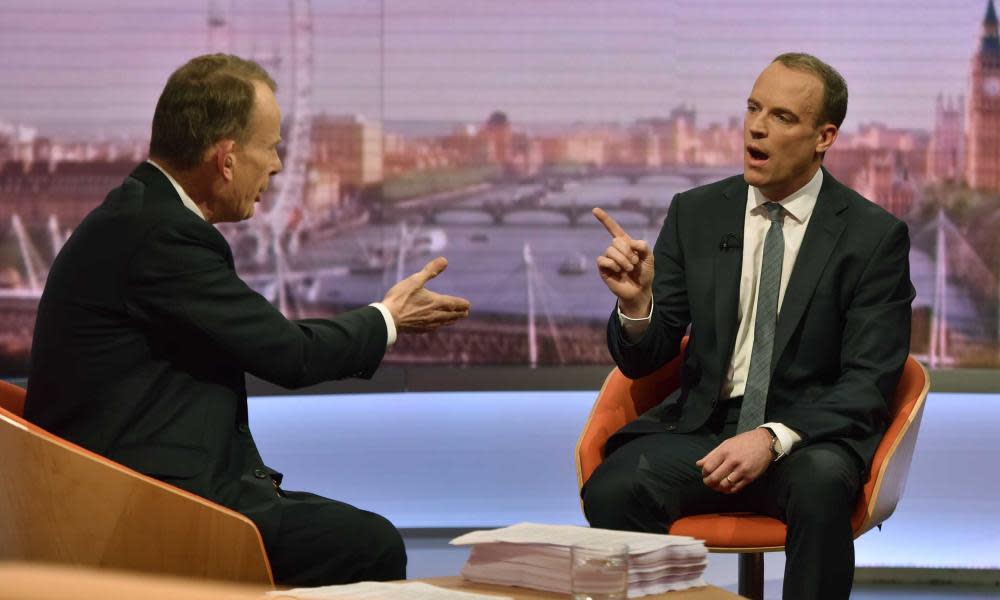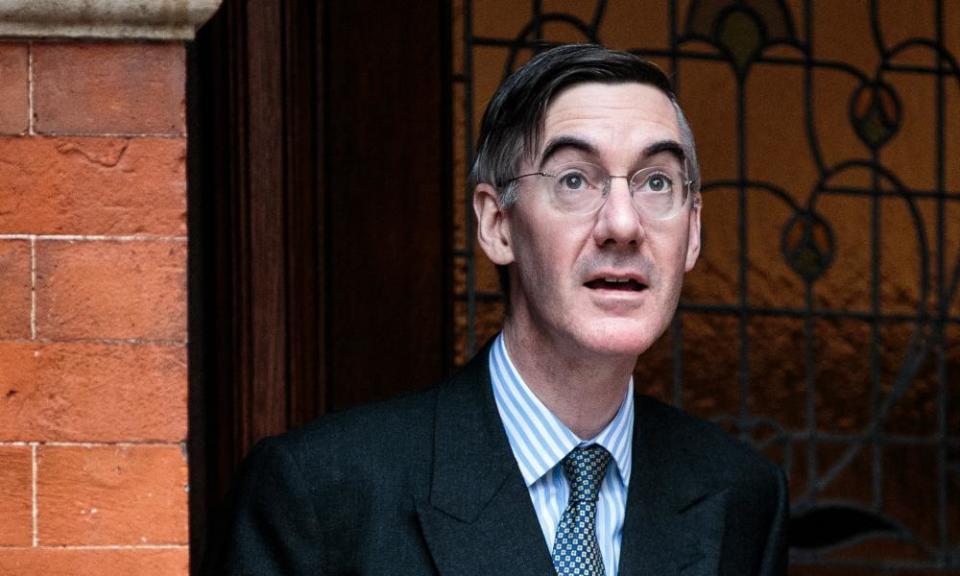A Tory leadership contest won’t solve the Brexit crisis

When they go low, we go high.” The publication of Michelle Obama’s memoir, Becoming, has reminded the world of her spirited campaign slogan. It has also become clear in the past week that the Conservative party has its own, dismal version of her maxim: “When the problem gets big, we get small.”
Britain is approaching the end of formal negotiations with the European Union that will decide this country’s commercial, economic, demographic and cultural character for decades to come. And what are the Tories doing? Fretting over the number 48, that’s what.
This, of course, is the arithmetical threshold that triggers a confidence vote in Theresa May as Conservative leader. Once 48 Tory MPs lodge letters calling for such a motion, she could well be sacked by her own side – as Iain Duncan Smith was in 2003. In the Sunday Telegraph, Zac Goldsmith added his name to the list, bringing the total – as declared in that paper – to 25. In the coming days, as the rest of us fret about the NHS running out of medical supplies and gridlock at Britain’s ports, most Tories will be focusing on this figure like City boys who’ve bet the farm on a single stock. And for what?
I’ve been calling for May’s resignation since the day after she lost the Conservatives’ Commons majority last June. But – come on – there’s a time and a place. Disastrous prime minister though she undoubtedly is, what evidence is there that a different Tory leader would be able to negotiate a better deal in the midst of this crisis and in the time remaining?
The point of hubris, though, is that it defies common sense. There they all are, lining up to replace May at the worst conceivable moment. I should think Boris Johnson in particular was unnerved by Dominic Raab’s smooth performance on the BBC’s Andrew Marr Show.
The recently-ex Brexit secretary is terrifyingly relaxed about a no-deal outcome to the talks, suggesting that the disruption could be handily managed by practical measures like increasing the number of lorry inspection cabins at Dover, and more radical steps like cutting taxes to stimulate the economy.
I wonder if he really believes this nonsense. For now, however, what counts is that he looks and sounds as though he does. In the past few days, it has mysteriously been very widely broadcast that he is a karate black belt – almost as if someone is phoning politicians and journalists to tell them what a calm and yet potentially lethal leader he would make. Raab informed Marr that he considers Johnson a “friend” but not an “ally”: game on, I’d say.

Meanwhile, the so-called Famous Five of conditionally loyal Brexiteers – Liam Fox, Michael Gove, Chris Grayling, Andrea Leadsom and Penny Mordaunt – have stayed in the cabinet to put pressure on May to “renegotiate” the 585-page plan before the EU council of ministers on 25 November. Again, one marvels at the sheer arrogance of this tactic. Do the five truly believe that a week of intellectual muscle, moral certainty and stern language is going to compel Brussels to hastily rewrite an agreement so long and painful in the drafting? In her interview with Sky’s Sophy Ridge, the PM could offer only the wan guarantee that “nothing is agreed until everything is agreed”.
Kwasi Kwarteng, recently appointed a Brexit minister, conceded to Marr that there might yet be some “tweaks”. Then, in a classic case of psychological transference, this normally unflappable politician reacted angrily to a Sunday Times story about Emily Lydon, a 19-year-old vCJD sufferer who cannot speak, walk or eat by herself. Thanks to the universal credit reform, she was forced to attend a work capability assessment, and has had her benefits cut so sharply that she and her carer may have to sell their bungalow.
Kwarteng responded by denouncing what was supposedly an outrageous attack on the government’s record of economic management. In this uncharacteristic but very telling eruption you could hear the sound of an entire party’s tether being stretched to the very limit.
In all this, May’s position is what it always is. She is staying put. Immobility, stubbornness, stasis: that’s what she does. In her unembarrassable fixity, she makes the Weeping Angels on Doctor Who look like Usain Bolt.
What can she do to stop the showboating of Jacob Rees-Mogg, the European Research Group and those still gripped by the post-truth delusion that Brexit is the path to a new Jerusalem? Not much. A sect bent on bedlam is hard to thwart at the best of times – and these are certainly not the best of times.
As Jo Johnson, who resigned as transport minister on 9 November, wrote in the Financial Times: “there comes a point ... when the internal inconsistencies of a work become so glaring that the effort to stave off incredulity becomes too great for the reader and the spell is broken”. He added, correctly, that it was “not clear whether the campaign promises [of leave] could ever have been delivered in reality, even by the most fervent of believers”.
Which is, of course, the authentic big picture. The nation is stuck on a path that makes no sense, in which those who dare to say that circles cannot be squares, or that cakes cannot be both consumed and retained, are still branded enemies of democracy.
On the contrary: it is democracy, in the form of a people’s vote, that offers the only reliable path out of this crisis. But most Tories still scorn this option. Unless and until they change their minds, they will be locked in an ugly limbo of their own creation, lashing out at demons and clutching at straws. They will be, to coin a phrase, citizens of nowhere.

 Yahoo News
Yahoo News 
